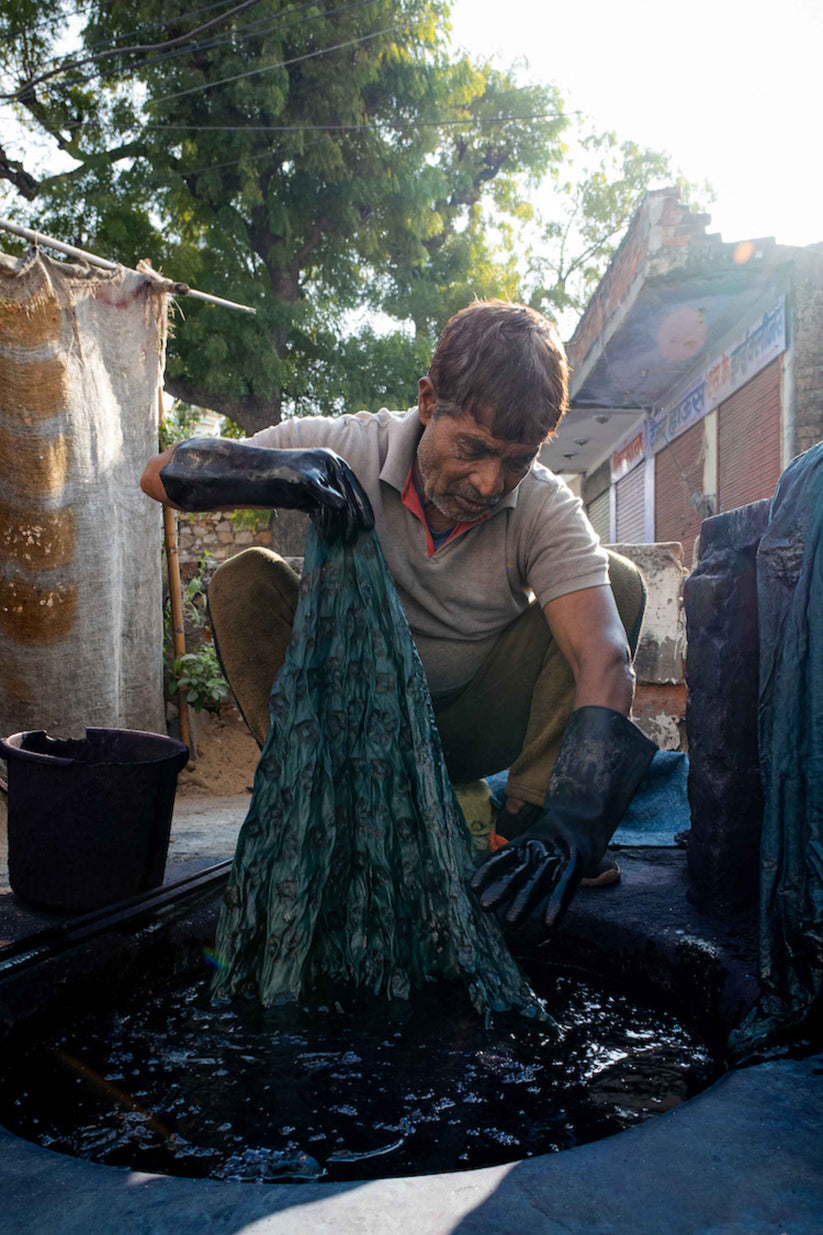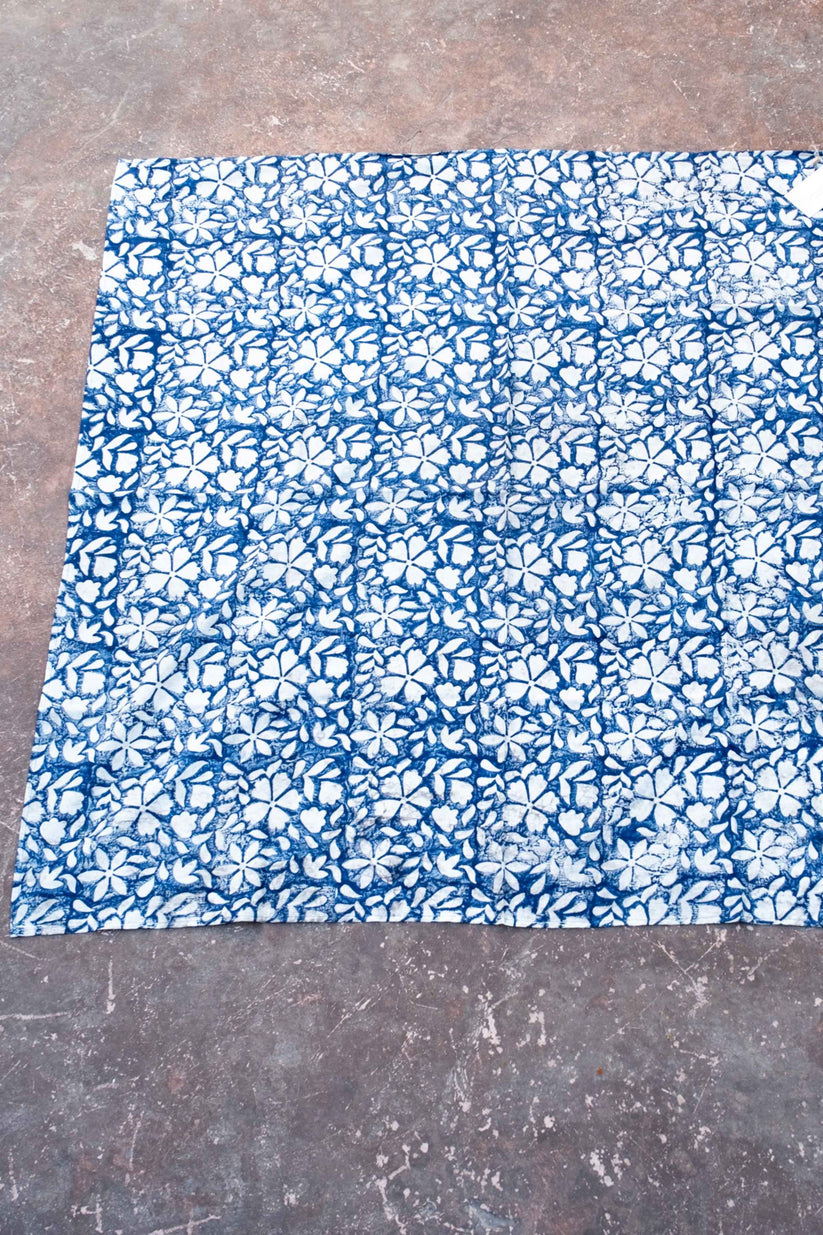TO MEET DEMAND — PREORDER ORGANIC SWIM/SAUNA NOW
Chemical-Free Clothing for You and the Environment

Chemical-free clothing is essential for several reasons encompassing health, environmental, and ethical considerations.
In recent years, there has been a growing awareness and concern about the impact of chemicals on our lives, particularly in the context of clothing. Chemical-free clothing, also known as organic or eco-friendly clothing has gained prominence as a healthier and more sustainable alternative to conventional apparel. This essay explores why chemical-free clothing is important from various perspectives including human health, environmental sustainability, and ethical considerations.
Read: Organic Fall Essentials for a Chemical-Free Season
The first and foremost reason for prioritizing chemical-free clothing is its profound impact on human health. Conventional clothing from traditional fashion brands often undergoes extensive chemical treatments throughout its production process. These toxic chemicals can be harmful to both the workers who produce the clothing and the consumers who wear it.
In many developing countries where clothing is mass-produced, factory workers are exposed to hazardous chemicals daily. These chemicals, such as dyes, bleaches, and synthetic additives, can lead to a range of health issues including skin irritations, respiratory problems, and even long-term health conditions. By supporting chemical-free clothing, consumers can help improve the working conditions and safety of garment workers worldwide.
The Impact on our Health
Read: Elevate Your Wellness Routine With These 7 Wellness Essentials
For consumers, wearing clothing laden with chemicals can trigger various skin sensitivities and allergies. The synthetic dyes and finishing agents used in conventional clothing often contain allergens and irritants. By choosing chemical-free clothing, individuals can reduce the risk of skin reactions, making it a preferred option for those with sensitive skin.
Our skin is the largest organ, therefore another concern is the potential absorption of chemicals through the skin. Research suggests that some synthetic materials and chemical treatments used in clothing can release toxins when in contact with the skin, which then are absorbed into the bloodstream. Over time, this exposure can have detrimental effects on health, contributing to a range of health issues, including hormonal imbalances and even cancer.
The Environmental Sustainability Side
Beyond health considerations, chemical-free, naturally-dyed clothing plays a pivotal role in promoting environmental sustainability. The conventional textile industry is notorious for its harmful ecological footprint, and chemical-free clothing offers a greener alternative.
Reduced Chemical Runoff
One of the most significant environmental benefits of chemical-free clothing is the reduction in chemical runoff into waterways. Conventional textile production relies heavily on chemical dyes and finishes which often find their way into rivers and streams, polluting freshwater ecosystems. By choosing chemical-free clothing with low impact dyes, consumers can help mitigate this pollution, preserving aquatic habitats and biodiversity.
A Great Way to Lessen Our Carbon Footprint
100 organic cotton and eco-friendly textiles are often produced using more sustainable farming practices. For instance, organic cotton is grown without synthetic pesticides and fertilizers, which reduces the carbon footprint associated with chemical-intensive agriculture. This shift toward sustainable farming methods can contribute to mitigating climate change.
Many chemical-free clothing materials are biodegradable, meaning they break down naturally over time without releasing harmful substances into the environment. This contrasts with synthetic fibers like polyester, which can persist in landfills for hundreds of years, further exacerbating the waste crisis. Choosing clothing made from natural, biodegradable fibers helps reduce the environmental burden of textile waste.
Read: Swimwear Brand Goes Plant-Based
Let’s Dive into Ethical Considerations
In addition to health and environmental factors, ethical considerations are a compelling reason to opt for chemical-free clothing.
Chemical-free clothing brands often prioritize fair labor practices. They tend to pay workers fair wages, provide safe working conditions, and ensure that employees are treated with dignity and respect. By supporting such brands, consumers can contribute to the global movement for fair labor practices and workers' rights.
Animal-derived materials, such as wool and leather, are sometimes used in clothing production. Chemical-free clothing brands are more likely to prioritize ethical sourcing and animal welfare. They may use cruelty-free alternatives or ensure that animal-derived materials are obtained through humane practices, avoiding unnecessary harm to animals.
Read: Are You An Ethical Consumer?
The fast fashion industry, characterized by rapid turnover and disposable clothing, has significant environmental and social consequences. Chemical-free clothing encourages a shift towards sustainable fashion practices. It promotes the idea of buying fewer, higher-quality garments that are designed to last, reducing the overall demand for cheap, throwaway fashion.
In an era where health and sustainability take center stage, the concept of chemical-free clothing is rapidly gaining momentum. This innovative approach to fashion not only benefits our well-being but also contributes to a greener planet.

Organic Cotton Wrap Dress, available in 3 colors.
Be the Change with BeachCandy Organics
In a world where fast fashion dominates, "Be the Change Organic Cotton Collection" stands out as a beacon of sustainable, ethical, and beautifully crafted clothing. This collection embodies a commitment to preserving traditional craftsmanship, promoting environmental responsibility, and supporting local communities in India. Let's delve into what makes this collection so remarkable.

Organic Khadi Cotton Crop Top + Wrap Skirt, available in 4 colors.
Organic Cotton: A Sustainable Choice
The cornerstone of the "Be the Change" collection is organic cotton. Unlike conventional cotton, organic cotton is grown without the use of synthetic pesticides and fertilizers. This cultivation method not only safeguards the health of cotton farmers but also preserves the soil's long-term fertility. By choosing organic cotton, "Be the Change" demonstrates its dedication to sustainable agriculture and reducing the environmental impact of textile production.
Chemical-Free Clothing: A Healthier Alternative
Conventional clothing often undergoes extensive chemical treatments during production. From toxic dyes to harsh finishing agents, these chemicals can pose serious health risks to both consumers and garment workers. "Be the Change" takes a bold stance against this practice by offering chemical-free clothing.
This means that the entire production process, from growing the cotton to dyeing and finishing the fabric, is free from harmful chemicals. By prioritizing chemical-free clothing, "Be the Change" ensures that its customers enjoy garments that are gentle on their skin and overall well-being.

Handcrafted Excellence: Ancestral Artisans at Work
What truly sets the "Be the Change" collection apart is its commitment to preserving the rich heritage of Indian craftsmanship. Every piece in this collection is handcrafted by ancestral artisans, who have honed their skills over generations. This approach not only keeps traditional crafts alive but also provides a source of livelihood for these artisans and their communities.
The intricate designs and meticulous attention to detail in each garment reflect the pride and craftsmanship of these artisans. From handwoven fabrics to hand embroidery, every element of "Be the Change" pieces tells a story of skilled hands and cultural significance.

Organic Cotton Head Scarf, available in 4 colors/prints.
Traditionally Block Printed: A Time-Honored Technique
Block printing, a centuries-old Indian tradition, is at the heart of the "Be the Change" collection. This art form involves intricately carved wooden blocks, which are used to stamp patterns onto the fabric. The result is a unique, textured design that cannot be replicated by modern machinery.
What's even more impressive is that these patterns are printed with plant-based dyes. These dyes are derived from natural sources like leaves, flowers, and roots, ensuring that the colors are vibrant and eco-friendly. By embracing this traditional technique and using plant-based dyes, "Be the Change" contributes to the preservation of ancient craftsmanship and reduces the environmental impact of textile dyeing.
Empowering Artisan Communities Around the World
By sourcing materials locally and working with ancestral artisans, "Be the Change" actively contributes to the economic empowerment of Indian communities. This collection supports fair labor practices and ensures that artisans receive fair compensation for their skills and craftsmanship. This not only helps sustain traditional livelihoods but also fosters a sense of pride in their cultural heritage.
In recent years, consumers have become more conscious of the potential health risks associated with chemicals commonly used in the production of traditional textiles, from pesticides used in cotton farming to synthetic dyes and finishing agents. These chemicals can have adverse effects on both the wearer and the environment.
As a result, an increasing number of conscious brands are embracing the movement toward certified organic cotton clothing, championing a safer and more sustainable alternative.
The Health Benefits of Going Chemical-Free
Chemical-free clothing offers a host of benefits for personal well-being. Traditional color fabrics and clothing often contain residues of harmful chemicals, which can lead to skin irritations, allergies, and even more severe health issues. By choosing chemical-free organic fabrics, individuals can reduce their exposure to these potential risks.
Natural fibers like organic cotton fabric, hemp, and bamboo are often used in chemical-free clothing, ensuring that the textiles touching our skin provide natural fiber protection.
Read: Natural Fiber Underwear That You Should Wear
Beyond personal health, chemical-free cotton linen clothing also contributes to environmental sustainability. Traditional textile production relies heavily on pesticides, fertilizers, and water-intensive processes. The runoff from these harvest mill practices can contaminate water sources and harm ecosystems.
On the other hand, chemical-free clothing is manufactured using eco-friendly practices that prioritize organic farming, natural dyeing methods, and reduced water consumption. This results in a smaller carbon footprint and less environmental degradation.
Supporting Local Communities
The shift toward chemical-free clothing supports local communities as well. Organic farming methods tend to promote healthier soil, reduce water usage, and support the livelihoods of local farmers. By choosing chemical-free clothing, consumers indirectly contribute to the prosperity of these communities and encourage sustainable agricultural practices.
Chemical-Free is the Conscience Future
While the movement toward chemical-free clothing is promising, challenges still exist. Limited availability and higher costs can be barriers for some consumers. However, as demand grows and technologies improve, the costs are likely to decrease, making chemical-free clothing more accessible. Additionally, advancements in sustainable textile innovation are opening up new possibilities for creating clothing that is both chemical-free and stylish.
The power of chemical-free clothing is an understatement. From empowering personal health to promoting environmental sustainability and supporting local communities, this fashion revolution has far-reaching positive impacts.
As consumers, making conscious choices in favor of chemical-free clothing is not only a step towards a healthier lifestyle, but also a significant contribution to a more sustainable and thriving planet. So, the next time you're looking for new cotton clothing, consider the power of chemical-free options and join the movement towards a greener future.
Read: How to Detox Your Wardrobe
In conclusion, chemical-free clothing is crucial for multiple reasons spanning human health, environmental sustainability, and ethical considerations. By choosing chemical-free clothing, individuals can protect their own health, improve working conditions for garment workers while reducing environmental pollution, promoting sustainable farming practices, supporting fair labor, and contributing to the advancement of ethical fashion.
Shopping with organic clothing brands is not merely a fashion choice but a conscientious decision – one that holds the power to positively impact individuals, communities, and the planet as a whole.
Follow Along + Be the Change with BeachCandy
Written by Cailee Gansert & Brit B.
